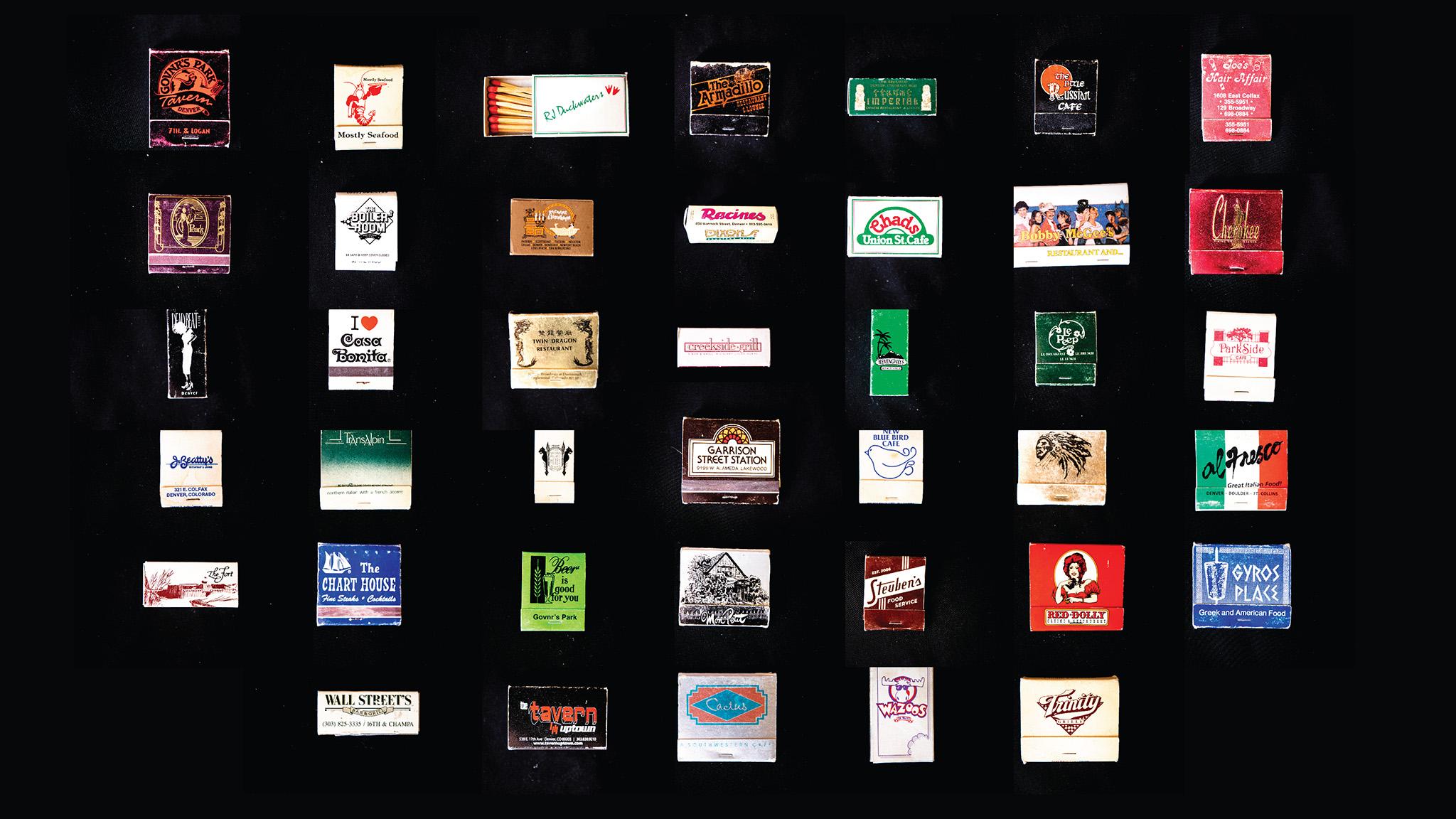Until recently, Denverites stopping for breakfast at Racines in Capitol Hill would likely find a who’s who of Colorado’s political scene. Visit Govnr’s Park elsewhere in the neighborhood and you would find it packed with sports fans drinking beer and watching the game. You could dance to good music during a night out at Deadbeat Club in University Hills and enjoy a more family friendly experience at Casa Bonita in Lakewood.
But Govnr's Park poured its last beer in 2018. Racines closed in 2020, a casualty of the pandemic. Deadbeat Club turned into a number of different night clubs in the early 2000s until a fire destroyed the building in 2015. After closing during the pandemic, Casa Bonita made a highly anticipated return last year.
Such is the lifecycle of a city.

Denver has seen a lot of change in the past two decades even before a pandemic that was tough on the already turbulent restaurant industry. Generations grow up, trends change and longtime owners decide to throw in the towel.
But fragments of Denver history linger through matchboxes found in places like Fever Dream, a vintage store off Colfax Avenue that sells the ephemera for $2.
Owner Veronica Desangles began by buying old matchboxes in bulk online, which explains why some of her inventory ranges all across the country. But then Denver customers started bringing in their supply and coming in with stories about old city spots.
“Since they’re on the table people just come to me,” Desangles said. “They're like, ‘My mom collected all these, will you buy them?’ So now it’s kind of just snowballed.”
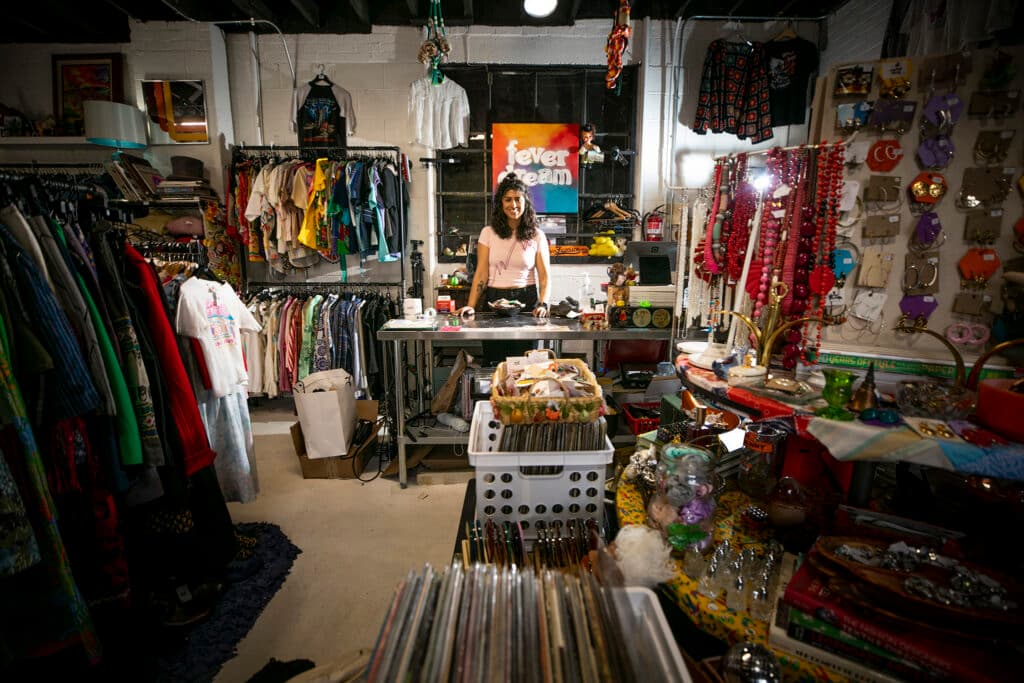
Her bowl of matchbooks is a scavenger hunt where nostalgic Denverites can find tributes to long-time city spots.
A group of matchbooks from Cafe Netherworld, a 90s-era “cyber cafe” that served drinks, sold quickly to former patrons who fondly remembered the former Capitol Hill spot.
Many of the matchbooks are artifacts of longtime Denver and Colorado businesses. Cherokee on 12th Avenue closed in 2012 after 28 years, Trinity Grille downtown made it three decades before closing in 2016 and Twin Dragon Restaurant in Englewood closed last year after 47 years. In Facebook groups staff and regulars across the country remember the 1980s-era restaurant Bobby McGee’s, which had a Denver location in Hampden.
They’re not all restaurants and bars; one matchbook belongs to Joe’s Hair Affair, a barbershop that used to operate two locations on Colfax Avenue and on Broadway.
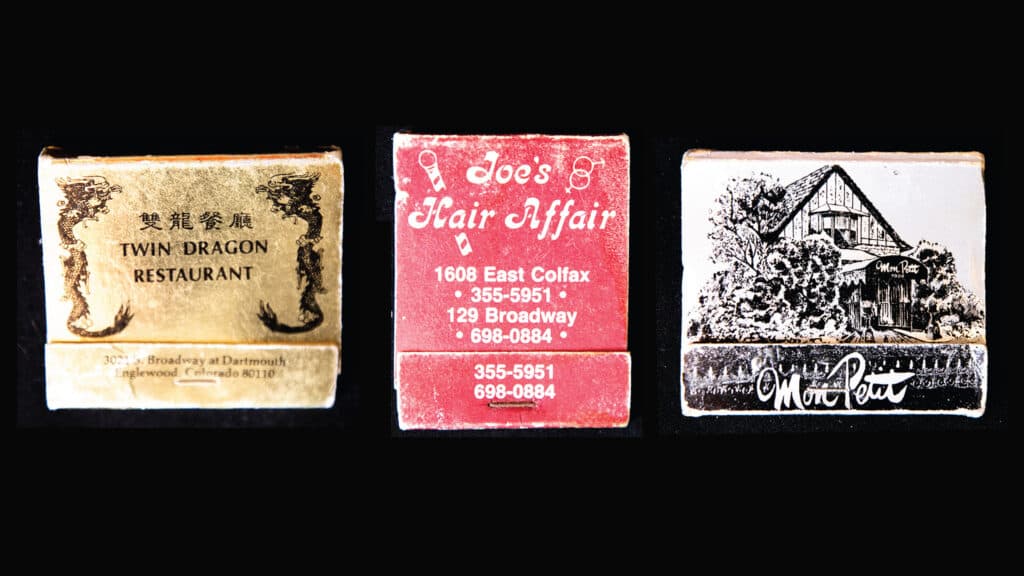
Kristen Autobee, a historian who wrote a book about the city’s food history called “Lost Restaurants of Denver,” said just one year in operation is a major feat for a business.
“If you can last a year as a restaurant, you've really done something,” she said. “If you make it beyond 10 years, you are an amazing business. Most restaurants close in the first one to five years.”
Autobee said it’s not just Denver’s growth, economic trends or the pandemic that contribute to long-time spots closing.
“Sometimes restaurants close because society has changed in other ways. A new generation is starting to spend money when they go out,” she said. “It might have to do with food, it might have to do with just how my friends and I socialize, that changes places. So the model of, for example… Cherokee, that's not going to be an attractive model to Gen Z or even a lot of millennials.”

Some of the matchbooks are tied to state and national history.
Autobee said that Garrison Street Station used to serve employees at the Denver Federal Center, which hosts a range of government employees. That site used to be an arms plant during World War Two, where an older iteration of the restaurant would serve workers coming off shifts.
Other matchbooks include Native American iconography that likely would not be printed today, which Desangles said are typically bought by Native people.
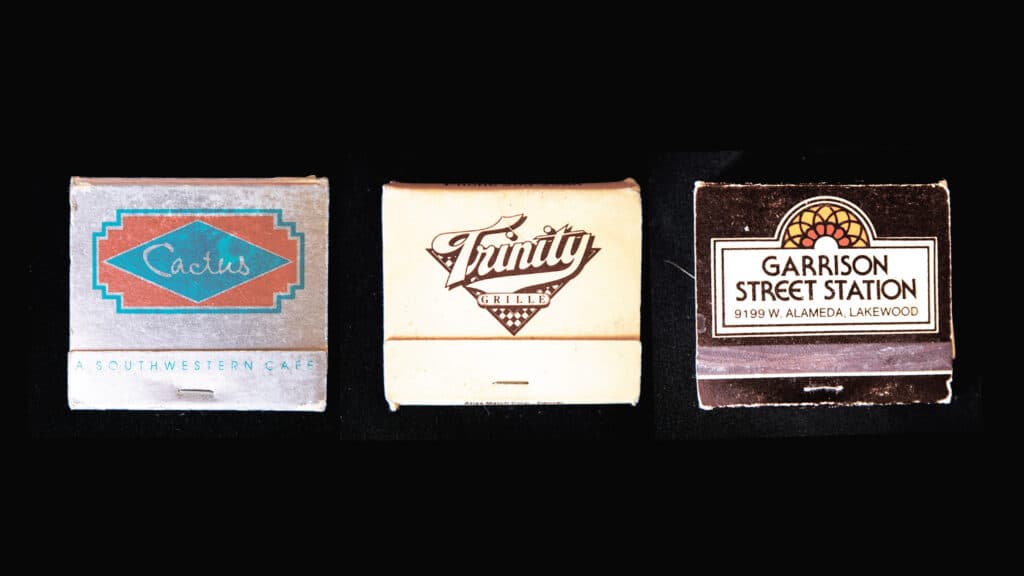
While most of the restaurants and bars recalled by the matchbooks are now closed, a handful still serve customers.
There’s Imperial Chinese Restaurant, which opened on South Broadway in 1985 and continues to operate today. Red Dolly Casino is still open in Black Hawk, The Fort maintains operations in Morrison and the 1800s-era Brown Palace still hosts guests as a true testament to Denver history.
Then of course there’s the reopened Casa Bonita. But Desangles’ particular matchbook has a twist; it belongs to a now-defunct Tulsa location. The iconic Colorado restaurant started as a chain in Oklahoma, but today only the Lakewood location remains.
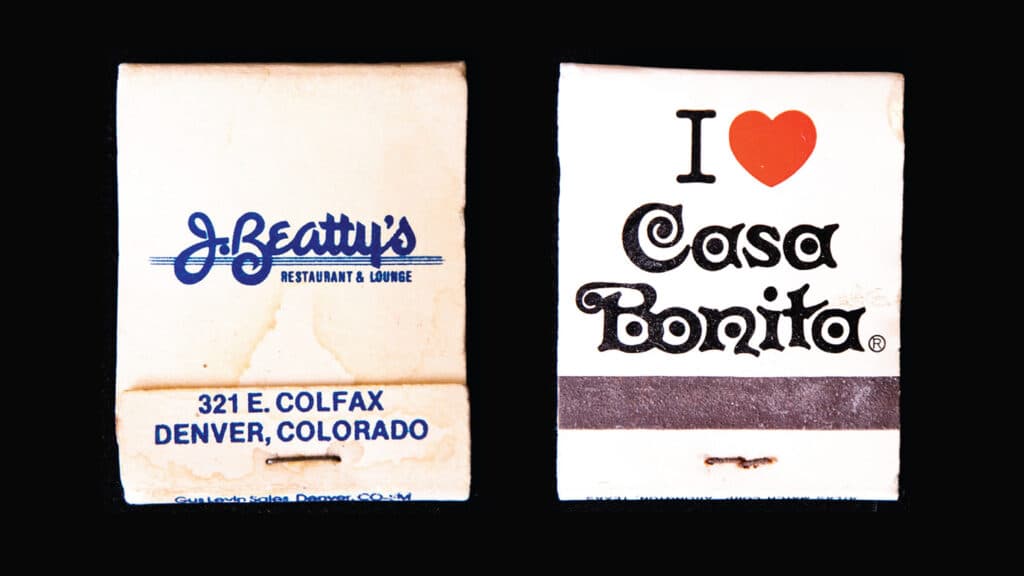
Even for the restaurants and bars that remain open, it’s unlikely many are still giving out matchbooks today.
Matchbooks first took off as a marketing tactic in the early 1900s. But as the United States launched a legal and PR fight against smoking as a public health issue, they began to fall out of favor as marketing giveaways. In 1985 Aspen became the first city in the country to restrict smoking in restaurants.
Today, many are hidden in vintage and antique stores across the country as testaments to anyone old enough to remember smoking cigarettes indoors. Recently, collecting old matchbooks has taken off among young people on social media, who turn them into art or frame them for display.

Ironically, Desangles said that most of the old matchbooks she finds don’t work any more. Unlike vintage clothes, they lack any practical use.
But still, they have staying power.
“We can imagine somebody using it, somebody picking it up off the counter while they're paying their check and walking out,” Autobee said. “They really represent a very human touch to history.”

